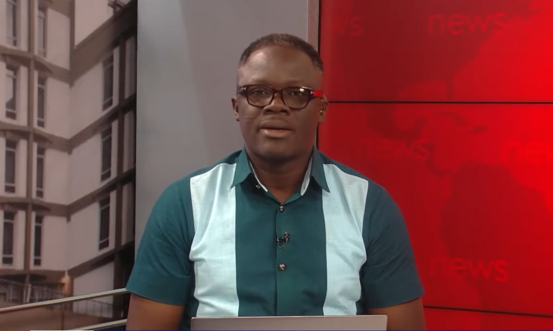June 3 disaster: 10 years on, victims await court decision in search for justice – Samson Lardy Anyenini – Nsemkeka
Ten years after a tragic flood and fire disaster claimed over 150 lives and left scores permanently injured, victims of the 3rd June 2015 catastrophe are still waiting for justice.
Counsel for the victims and host of JoyNews’ Newsfile, Samson Lardy Anyenini, says he remains hopeful that the courts will rule in favour of the affected families and survivors.
Speaking to the media, Mr Anyenini reiterated the extent of human suffering caused by the incident and the urgent need for a meaningful state response.
“We have demonstrated to the court that people suffered—have suffered permanent disfigurement to their faces, disfigurement to their heads, their arms, their legs, their torsos, their stomachs. This is permanent,” he said.
The twin disaster struck on the night of 3rd June 2015, when torrential rains led to severe flooding in Accra.
Dozens of people, seeking shelter at the GOIL filling station near Kwame Nkrumah Circle, were caught in an inferno when leaking fuel ignited, causing a massive explosion.
A total of 154 people were confirmed dead, with many others sustaining life-altering injuries.
Mr Anyenini acknowledged the government’s initial intervention—paying for the burial of the deceased and covering medical bills for injured victims during their initial hospital stays—but insisted that support since then has been grossly insufficient.
“There were some who spent a week, two, three weeks, a month, and some who spent about six months in the hospital. That’s all the government took. Afterwards, almost all of them have been returning to the hospital for care at their own expense,” he said.
While the victims and their families appreciated the early assistance, Mr Anyenini described it as “woefully inadequate” in meeting the long-term needs of those who continue to suffer the physical and emotional consequences of the tragedy.
The legal case, filed in 2018, seeks a compensation package of approximately GH₵42 million. Though Mr Anyenini concedes that the real value of that amount has been eroded by inflation, he argues that a favourable ruling—or a direct government intervention—could still provide much-needed relief.
“The government can make an intervention that can bring some solace and more meaningful help to them,” he urged.

